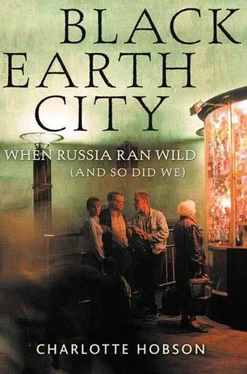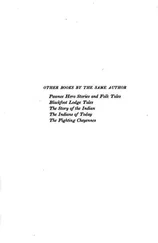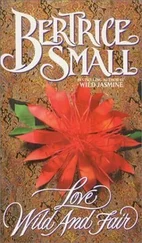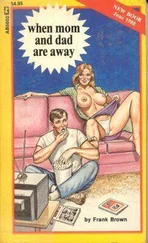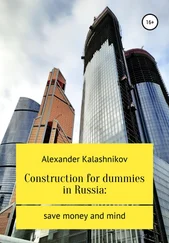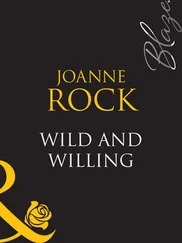The children playing hide-and-seek among the trees were scarlet with giggles; a tiny boy was trying to hide behind a sapling, without realizing that he was the broader of the two. He kept very still and squeezed his eyes shut.
SOPHIE: Talking ill of Moscow! That comes of seeing the world! Where could be better?
CHATSKY: Where there are none of us.
ALEKSANDR GRIBOEDOV,
WOE FROM WIT , 1824
A little pale sunlight was failing to compete with the blaze of autumn the day Edik Zelyony first took me out for ice cream. He clasped his hands behind his back and picked his way through the drifting leaves, complaining about Voronezh in his precise English. “So small-minded. Just gossip, gossip. And there is no work here either. My aunt in Moscow will soon be sending for me, although of course, Moscow! It’s just a big village. But it’s easier to go abroad from Moscow, you understand.”
When we reached the ice cream parlor at the end of Revolution Prospect, Edik removed his jacket and cap, peering in the mirror at his long, thin face and bulbous eyes, straightening his spectacles. He adjusted the silk scarf around his neck minutely and ushered me to a seat, explaining, “I’m a martyr to my throat.”
The ice cream came in steel bowls and the teaspoons had holes in them, to discourage customers from taking them home. Edik put a spoonful into his coffee and drank it before the ice cream melted. “Most of the Jews have already gone,” he said. “The orchestras are shrinking all over the country… There are just a handful of us left.” He sucked his spoon disconsolately, then cheered up. “I’ll introduce you to the Uvarovs,” he announced. “They’ll be glad to meet you. They keep an open house—you know, a salon. There you will find le tout Voronezh. It’s their daughters, Masha and Valya—Madame Uvarova is determined to find them each a suitable husband. At the moment Valya is seeing a boy who is terribly rich, dreadfully rich! His father is building himself a house with four turrets and a Jacuzzi. But, you know, Madame Uvarova is not satisfied, she is chasing him away little by little. He is not cultured, you see. That is what matters to La Uvarova. Also he is fat.”
“What about you, Edik? Are you suitable?”
“Oh, I am quite a habitué of the household. Not enough money, you see”—he rolled his eyes—“but cultured. The Uvarovs say, ‘Here is Zelyony! Now we shall have intelligent conversation.’ You’ll hear them say it. The provinces, you understand… the intelligentsia is quite suffocated here.” Gloomily, he licked the last of the ice cream from his upper lip.
That evening, back at the hostel, I sat down to write a letter. “I’ve met a character straight from Chekhov!!” I scrawled, not sparing the punctuation. “He’s a friend of my roommate’s, a graduate from the Philological Faculty. The only difference is, he’s not dreaming of Moscow, but the Rive Gauche or Bloomsbury, seething with intellectuals. He’s a terrible snob, vain too, but somehow a sympathetic character—perhaps because it feels as though I’ve already seen this play.”
A couple of days later there was a knock on my door and Edik walked in. “My throat is killing me,” he announced piteously. “I can barely speak. Treat me with your bourgeois medicine.”
He languished a little, while I looked in the bags under my bed. Searching through these bags took hours of my day in Voronezh. I rarely found the exact thing I was looking for, although all sorts of randomly associated, useless objects would emerge. This time I did come across a packet of lozenges, but Edik dismissed them. “Soviet-style—not real medicine.”
“Well, no, but—” I thought for a moment and took up the first thing that came to hand, which happened to be a bottle of vitamin B pills. “You’re right. You need something stronger… These are the thing. Take them with water. Yes, I know they don’t taste good. It’s because they’re double-strength.”
So we both set off satisfied to the Uvarovs’ apartment on Liberation of Labor Street. They lived in one of the solid blocks built under Stalin, its mustard-colored facade decorated with fat stucco cornucopias. Inside the apartment, however, there was little trace of the Soviet years. Photographs of the Uvarovs’ illustrious ancestors and the grandfather who had emigrated were propped on every surface. In the sitting room a grand piano stood open with a book of nineteenth-century ballads on the stand, and a bust of Plato gazed at the wall.
Mrs. Uvarov appeared, a fragile, vivacious woman. “Come into the kitchen. We’ll have tea.”
We took our shoes off in the hallway, as is polite in Russian houses, and sat down at the kitchen table. Mrs. Uvarov summoned her daughters. “Masha, Valya,” she trilled. “Edik is here to tell us the gossip!”
Edik twined his large, bony legs together. “Oh, Tatyana Mikhailovna, what can I say? Charlotte has cured my throat—you know how I suffer with it. Just one little pill and it’s quite better.”
“No!” Mrs. Uvarov began to lay out tea with little meringues and sweets. She spooned preserved strawberries onto saucers and passed them to us. “Tell us, what was it? Of course we won’t be able to buy it here, but my cousins in America, perhaps—”
“Oh, I don’t—I can’t think what the medical name is—”
“Well, you must be sure to let me know. Ah, here are the girls. What’s kept you?”
A pale, blond girl hurried in, followed by her sister. “Hello, I’m Masha,” said the first, smiling quickly. “Edik told us all about you already. This is Valya.”
“Hi,” said Valya. At first glance, the two sisters were almost identical—there was probably less than a year between them. Yet everyone they met must have noticed how, by the injustice of nature, their faces differed. Where Masha’s eyes were exhausted, Valya’s were dark and luminous; Masha’s unhealthy pallor was Valya’s translucent complexion, while Masha’s animated, nervy manner only emphasized her sister’s look of sullen passivity.
“Oh, how delightful it is to have a foreigner here,” continued their mother brightly. “You cannot imagine how we suffer in Voronezh, so isolated, not a cultured person in the whole city, is there, girls? How we long for news! Tell me, is it the fashion in Britain to look so scruffy?”
“Er… perhaps not.”
“Isn’t it true,” asked Valya idly, “that when foreigners come to Voronezh, they deliberately dress like tramps? They think that way they’ll fit in?”
“No, I don’t think so.”
“Don’t mind Valya, she’s in a mood,” interrupted Masha. “Now, Charlotte, tell us: are there other charming English students here? Will you bring them to meet us?”
“She means boys,” supplied Edik.
“Oh, Edik, shhh, of course I mean no such thing. We are all lovers of foggy Albion, you know, we’ve read all your literature.”
There was a slight pause. Then Valya yawned. “You must understand. The point is that we can’t leave this place.”
That autumn, after several years of worry and expense, Edik was finally registered as Idiot: Grade Three. I bumped into him on Friedrich Engels Street as he returned from a final medical examination and he showed me his new identity card. “Come and celebrate,” he said, grinning. “My mother is at home frying eggs.”
In the Soviet system the Idiot: Grade Three received various benefits: cheap transportation, coupons for food and medicine and, on occasion, special housing. I suspected, however, the sums that had exchanged hands over Edik’s file more than outweighed the economic benefits of idiocy. No, the real advantage was that idiots did not do military service. (Or not below the rank of general, as the Soviet joke went.)
Читать дальше
